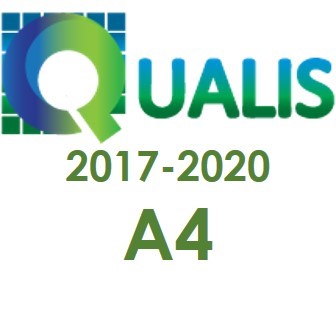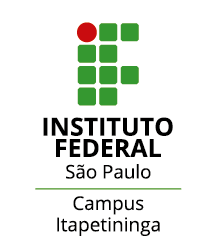Aprendizagem docente online
Palavras-chave:
Professor. Web. DigitalResumo
Tomo neste remix como referência a obra editada por Falk & Drayton sobre comunidades profissionais de aprendizagem online para professores, com o intuito de realçar com todas as cores possíveis a importância da formação docente (original e continuada) para a qualidade da aprendizagem escolar. Tornou-se cada vez mais claro que a inclusão digital mais promissora começa com o professor: enquanto ele mesmo não souber aprender usando computador e internet, a escola não consegue entrar nessa onda, mesmo que tenha laboratório de informática, computador por aluno, softwares disponíveis, etc. Uma razão forte para isso é que a “tecnologia” mais indispensável na escola é o professor. Levando-se em conta que novas tecnologias avançam sem parar e com visível agressividade de mercado neoliberal, a escola precisa preparar seus professores, impreterivelmente, sob risco de ficar fora da história contemporânea. É sempre um problema se todos os professores irão aderir a este desafio, já que muitos – ou pelo menos alguns – não se sentem mais motivados a “mudar de vida”, no sentido de incorporar habilidades digitais de aprendizagem. Respeitando esta posição, cabe, pelo menos, garantir oportunidade de acesso e desempenho aos que querem enfrentar a situação.
Downloads
Referências
BALL, D.L. 1997. Developing Mathematics Reform: What don’t we know about teacher learning – but would make good working hypotheses? In: Friel, S. & Bright, G. (Eds.). Reflecting on our Work: NSF teacher enhancement in K-06 mathematics. University Press of America, Lanham, p. 77-111.
BARAB, MOORE, J., CUNNINGHAM, D., THE ILF DESIGN TEAM. 2000. The internet learning forum: A new model of online professional development. Paper presented at the annual meeting of the American Educational Research Association, New Orleans.
BARAB, S., MAKINSTER, J.G., MOORE, J., CUNNINGHAM, D., ILF DESIGN TEAM. 2001. Designing and building an online community: The struggle to support sociability in the Inquiry Learning Forum.Educational Technology Research and Development 49(4):71-96.
BARAB, S.A., BAEK, E. SCHATZ, S., SCHECKLER, R., MOORE, J. 2002. Illuminating the braids of change in a web-supported community: A design experiment by another name. Barab, S. A., Baek, E.-o., Schatz, S., Moore, J., Sluder, K., & Scheckler, R. Paper presented at the American Educational Research Association Conference, New Orleans - http://readermeter.org/Moore.Julie/304a8e80-
-11e1-b17d-0024e8453de6/details
BARAB, S.A., MAKINSTER, J.GT., SCHECKLER, R. 2004. Designing System Dualities: Characterizing an online professional development community. In: Barab, S.A., Klink, R., Gray, J.H. (Eds.). Designing for virtual communities in the service of learning. Cambridge University Press,
Cambridge, p. 53-90.
BISHOP, A.P., BRUCE, B.C., LUNSFORD, K.J., JONES, M.C., NAZAROVA, M., LINDERMAN, D., WON, M., HEIDORN, P.B., RAMPRAKASH, R., BROCK, A. 2004. Supporting Community Inquiry with digital resources. Journal of Digital Information 5(3), Article No 308 - http://journals.tdl.org/jodi/index.php/jodi/article/view/140/138
BRUCE, B.C. 2009. “Building the airplane in the air”: The life of the inquiry group. In: Drayton, B. (Eds.). 2009. Creating and Sustaining online professional Learning Communities. Teachers College, N.Y., p. 47-67.
BRUCE, B.C. & EASLEY, J.A. 2000. Emerging communities of practice: Collaboration and communication in action research. Educational Action Research 8(2):243-259.
BRUCE, B.C. & RUBIN, A. 1993. Electronic Quills: A situated evaluation of using computers for writing in classrooms. Lawrence Erlbaum Associates, Mahwah.
BRUCKMAN, A. 2004. Co-evolution of technological design and pedagogy in an online community. In: Barab, S.A., Kling, R., Gray, J.H. (Eds.). Designing for virtual communities in the service of learning. Cambridge University Press, Cambridge, p. 239-255.
BRUCKMAN, A. 2006. Learning in online Communities. In: Sawyer, R.K. (Ed.). The Cambridge Handbook of the Learning Sciences. Cambridge University Press, Cambridge, p. 461-474.
CARTER, K. 1990. Teachers’ Knowledge and Learning to teach. In: Houston, W.R. (Ed.). Handbook of research on teacher education. Macmillan, N.Y., p. 291-310.
COHEN, A. 1985. The Symbolic Construction of Community. Tavistock, London.
DEMO, P. 2010. Educação e Alfabetização Científica. Editora Papirus, Campinas.
DEWEY, J. 1916/1980. Democracy and Education, Vol. 9. Southern Illinois University Press, Cavondale.
DEWEY, J. 1938/1986. Logic: The theory of inquiry. In: Boydston, J.A. (Ed.). John Dewey: The later works 1925-1953. Vol. 12. Southern Illinois University Press, Carbondale -http://www.jstor.org/discover/10.2307/1180029?uid=3737664&uid=2&uid=4&sid=21101282039653
DRAYTON, B. & FALK, J.K. 2009. Introduction. In: Falk, J.K. & Drayton, B. (Eds.). 2009. Creating and Sustaining online professional Learning Communities. Teachers College, N.Y., p. 1-14.
EGLASH, R., CROISSANT, J., DI CHIRO, G., FOUCHÉ, R. 2004. Appropriating Technology: Vernacular science and social power. University of Minnesota Press, Minneapolis.
EHRMANN, S. 1997. Asking the Right Question: What does research tell us about technology and higher learning? Annenberg CPB Project
– http://www.tltgroup.org/resources/Flashlight/AskingRightQuesiton.htm
FALK, J.K. & DRAYTON, B. (Eds.). 2009. Creating and Sustaining online professional Learning Communities. Teachers College, N.Y.
FALK, J.K. & DRAYTON, B. 2009a. MSPnet: Design dimensions for nested learning communities. In: Falk, J.K. & Drayton, B. (Eds.). 2009. Creating and Sustaining online professional Learning Communities. Teachers College, N.Y., p. 17-46.
GARRISON, J. 1996. A Deweyan Theory of democratic listening. Educational Theory 46(4):429- 451.
GARRISON, J. 1997. Dewey and Eros: Wisdom and desire in the art of teaching. Teachers College Press, N.Y.
GIERSCH, S., KLOTS, E.A., MCMARTIN, F., MURAMATSY, B., RENNINGER, K.A., SHUMAR, W., WEIMER, S.A. 2004. If you build it, will they come? Participant involvement in digital libraries. D-Lib Magazine – http://www.dlib.org/dlib/jkuly04/giersch/07giersch.html
GREENO, J.G. 2006. Learning in Activity. In: Sawyer, R.K. (Ed.). The Cambridge Handbook of the Learning Sciences. Cambridge University Press, Cambridge, p. 79-96.
GROSSMAN, P. & WINEBURG, S. 2000. What makes a teacher community different from a gathering of teachers. Center for Study of Teaching and Policy, Seattle.
HARLEY, D., HENKE, J., LAWRENCE, S., MILLER, I., PERCIALI, I., NASATIR, D. 2006. Use and Users of digital resources: A focus on undergraduate education in the humanities and social sciences. Center for Studies in Higher Education, Berkeley – http://cshe.berkeley.edu/research/digitalresourcestude/report
HAWKINS, D. 1965. Messing about Science. Science and Children 2(5):5-9.
JONES, S. & JOHNSON-YALE, C. 2005. Professors Online: The internet’s impact on college faculty. First Monday 10(9) – http://firstmonday.org/issues10_9/jones/index.htm
KIM, A.,J. 2000. Community Building on the Web: Secret strategies for successful online communities. Peachpit Press, Berkeley.
LAVE, J. & WENGER, E. 1991. Situated Learning: Legitimate peripheral participation. Cambridge University Press, Cambridge.
LESH, R.A., HAMILTON, E., KAPUT, J.J. (Eds.). 2007. Foundations for the Future in Mathematics Education. Lawrence Erlbaum Associates, Publishers, London.
LIH, A. 2009. The Wikipedia Revolution. Hyperion, New York.
LOVINK, G. 2011. Networks without a Cause – A critique of social media. Polity, Cambridge.
MCMARTIN, F. 2009. MERLOT: A Community-driven digital library. In: Falk, J.K. & Drayton, B. (Eds.). 2009. Creating and Sustaining online professional Learning Communities. Teachers College, N.Y., p. 96-122.
MCMARTIN, F., IVERSON, E., MANDUCA, C., WOLF, A., MORGAN, G. 2006. Factors motivating Use of digital libraries. Paper presented at the annual Joint Conference of Digital Libraries, Chapel Hill.
MEEHAN, H., DATNOW, A., HUBBARD, L. 2002. Extending Educational Reform: From One School to Many. Routledge, London.
MEEHAN, H., HUBBARD, L., STEIN, M.K. 2006. Reform as Learning: School Reform, Organizational Culture, and Community Politics in San Diego. Routledge, London.
MILLAR, S.B. 1995. Full Scale Implementation: The interactive ‘whole story’. In: Project Impact: Disseminating innovation in undergraduate education. National Science Foundation, Arlington.
MOORE, G. 1991. Crossing the Chasm. HarperCollins, N.Y.
MUNBY, H., RUSSELL, T., MARTIN, A.K. 2001. Teachers’ Knowledge and how it develops. In: Richardson, V. (Ed.). Handbook of research on teaching. American Educational Research Association, Washington, p. 877-904.
NARDI, B. 2002. Activity Theory and Design. In: Koschman, T., Hall, R., Miyake, N. (Eds.). Carruing forward the conversation. Lawrence Erlbaum Associates, MahWah, p0. 529-532.
NATIONAL RESEARCH COUNCIL. 2000. Inquiry and the national science education Standards: a guide for teaching and learning. National Academy Press, Washington.
OTTO, J., HANLEY, G., SWIFT, C. 2004. Distance Learning Success for the business school: MERLOT’s facilitation strategy. In: Christopher, D. (Ed.). E-World: Virtual learning, collaborative environments, and future technologies. National Business Education Association, Reston, p. 180-194.
PELAEZ, N.J. ASHTON, T.M., POLLARD, C., MOORE, J., GUENTER, C., WICKS, D., JUDD, D., PEARSON, D., STALEY, R., WETZEL, M.J. 2004. Keeping Faculty Online: The case of MERLOT. Academic Exchange Quarterly 8(4):25-32.
PHILIPS, S.D. 2010. Canada: Civil Society Under Neglect. Philanthropist/Le Philanthrope, 23, 1 - http://www.thephilanthropist.ca/index.php/phil/article/view/819
PHILIPS, S. & SMITH, S.R. 2010. Governance and Regulation in the Third Sector - International Perspectives. Routledge, London.
PRENSKY, M. 2010. Teaching Digital Natives – Partnering for real learning. Corwin, London.
PRENSKY, M. 2011. Digital Wisdom and Homo Sapiens Digital – Reflections and Digital
natives/Digital Immigrants, on decade later. In: Thomas, M. (Ed.). Deconstructing Digital Natives – Young people, technology and the new literacies. Routledge, London, p. 15-29.
RENNINGER, K.A. & SHUMAR, W. (Ed.). 2002. Building Virtual Communities: Learning and change n cyberspace. Cambridge University Press, Cambridge.
ROGERS, E.M. 2003. Diffusion of Innovations. Free Press, N.Y.
ROWE, M.B. 1978. Teaching science as continuous Inquiry. A basic. McGraw-Hill, N.Y.
SALOMON, G. (Ed.). 1993. Distributed Cognitions: Psychological and Educational Considerations. Cambridge University Press, Cambridge.
SARASON, S.B. 1996. Revisiting “the Culture of the School and the Problem of Change”. Teacher College Press, N.Y.
SARASON, S.B. 2004. And What Do YOU Mean by Learning? Heinemann, N.Y.
SARASON, S.B. 1993. The Predictable Failure of Educational Reform: Can We Change Course Before It's Too Late? Jossey-Bass, San Francisco.
SCRIBNER, S. 1997. Thinking in Action: Some characteristics of practical thought. In: Tobach, E., Falmagne, R.G., Parlee, M.B., Martin, M.W., Kapelman, A.S. (Eds.). Mind and social practice: Selected writings of Sylvia Scribner. Cambridge University Press, Cambridge, p. 319-337.
SCHECKLER, R. & BARAB, S.A. 2009. Designing for Inquiry as a Social Practice. In: Falk, J.K. & Drayton, B. (Eds.). 2009. Creating and Sustaining online professional Learning Communities. Teachers College, N.Y., p. 125-152.
SHULMAN, L. 1987. Knowledge and Teaching: Foundations of the new reform. Harvard Educational Review 57(1):1-22.
SHULMAN, L. 2004. The Wisdom of Practice: Managing complexity in medicine and teaching. In: Shulman, L. (Ed.). The wisdom of practice: Essays on teaching, learning, and learning to teach. Jossey-Bass, San Francisco, p. 249-272.
SHUMAR, W. 2009. Communities, texts, and consciousness: The practice of participation at the Math Forum. In: Falk, J.K. & Drayton, B. (Eds.). 2009. Creating and Sustaining online professional Learning Communities. Teachers College, N.Y., p. 68-95.
SHUMAR, W. & SARMIENTO, J. 2008. Communities of Practice at the Math Forum: Supporting teachers as professionals. In: Hildrecht, P. & Kimble, C. (Eds.). Communities of Practice: Creating learning environments for educators. Idea Group Publishing, Hershey, p. 223-239.
SNOW, J. 2005. StoneSoup: Technology innovation, introduction, and use to support learnercentered education. Unpublished doctoral dissertation, University of Illinois at Urbana-Champaign.
TALISSE, R. 2002. Two concepts of inquiry. Philosophical Writings 19/20:69-82.
TANNER, L.N. 1997. Dewey’s Laboratory School: Lessons for today. Teachers College Press, N.Y.
THOMAS, M. (Ed.). 2011. Deconstructing Digital Natives – Young people, technology and the new literacies. Routledge, London.
WENGER, E. 1998. Communities of Practice: Learning, meaning, and identity. Cambridge University Press, Cambridge.
WENGER, E., MCDERMOTT, R., SNYDER, W.M. 2002. Cultivating Communities of Practice. Harvard Business School Press, Boston.
WILLIAMSON, J. 2003. Teachers as Change Mediators in educational reform. Unpublished doctoral dissertation, University of Illinois at urbana-Champaign.
ZEMSKY, R. & MASSEY, W.F. 2004. Beyond Innovation: What happened to e-learning and why – Final Report for the Weatherstation Project of the Learning Alliance – University of Pennsylvania.
Downloads
Publicado
Como Citar
Edição
Seção
Licença
Copyright (c) 2024 Revista Internacional de Formação de Professores

Este trabalho está licenciado sob uma licença Creative Commons Attribution-NonCommercial-ShareAlike 4.0 International License.



 Este trabalho está licenciado sob uma licença
Este trabalho está licenciado sob uma licença 